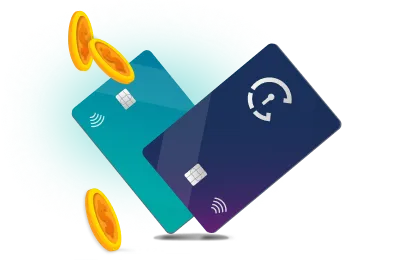Best Credit Cards for Bad Credit of 2026
When you have bad credit, getting approved for a credit card can be hard. Get matched to credit cards from our partners based on your unique credit profile.⍉

Improve your credit
Get back on the right track to improving your financial health.
Get better chances for approval
Our recommendations are for people like you who are looking to rebuild their credit.
Enjoy low fees
Most of these cards have low to no annual fees.
Browse categories
All credit card offers for bad credit
17 partner offers
Avant® Mastercard®
Ongoing APR: | 35.99%* |
|---|---|
Rewards: | N/A* |
Annual Fee: | $0* |
First Latitude Secured Mastercard® Cash Back Rewards
Ongoing APR: | 27.49% Variable |
|---|---|
Rewards: | 1% - 10% (cash back) |
Annual Fee: | $0 |
Avant® Cashback Rewards Mastercard®
Ongoing APR: | 35.99%* |
|---|---|
Rewards: | 1% (cash back) |
Annual Fee: | $39* |
Avant® Cashback Rewards Mastercard®
Ongoing APR: | 35.99%* |
|---|---|
Rewards: | 1% (cash back) |
Annual Fee: | $75* |
The opensky® Secured Visa® Credit Card
Ongoing APR: | 23.89% Variable |
|---|---|
Rewards: | 10% (cash back) |
Annual Fee: | $35 |
Capital One Platinum Secured Credit Card
Ongoing APR: | 28.99% (Variable) |
|---|---|
Rewards: | N/A* |
Annual Fee: | $0 |
Avant® Cashback Rewards Mastercard®
Ongoing APR: | 29.99%* |
|---|---|
Rewards: | 2% (cash back) |
Annual Fee: | $0* |
Avant® Cashback Rewards Mastercard®
Ongoing APR: | 35.99%* |
|---|---|
Rewards: | 1% (cash back) |
Annual Fee: | $0* |
Revel® Platinum Mastercard®
Ongoing APR: | 35.90% Fixed |
|---|---|
Rewards: | N/A* |
Annual Fee: | $75 - $125 |
Credit One Bank® Secured Card
Ongoing APR: | 29.74% Variable |
|---|---|
Rewards: | 1% (cash back) |
Annual Fee: | $0 |
Terms Apply
Rates and feesCapital One Quicksilver Secured Cash Rewards Credit Card
Ongoing APR: | 28.99% (Variable) |
|---|---|
Rewards: | 1.5% - 5% (cash back) |
Annual Fee: | $0 |
First Progress Prestige Secured Mastercard® Cash Back Rewards
Ongoing APR: | 13.49% Variable |
|---|---|
Rewards: | 1% - 10% (cash back) |
Annual Fee: | $49 |
First Progress Select Secured Mastercard® Cash Back Rewards
Ongoing APR: | 17.49% Variable |
|---|---|
Rewards: | 1% - 10% (cash back) |
Annual Fee: | $39 |
FIT™ Platinum Mastercard® - $400 Credit Limit
Ongoing APR: | 35.90% Fixed |
|---|---|
Rewards: | N/A* |
Annual Fee: | $99 first year; $125 thereafter |
Credit One Bank American Express® Card for Rebuilding Credit
Ongoing APR: | 29.74% Variable |
|---|---|
Rewards: | 1% (cash back) |
Annual Fee: | $75 First year. $99 thereafter, billed monthly at $8.25 |
Terms Apply
Rates and feesAvant® Cashback Rewards Mastercard®
Ongoing APR: | 35.99%* |
|---|---|
Rewards: | 1% (cash back) |
Annual Fee: | Introductory fee of $75 for the first year. After that, $99 annually.* |
How to get a credit card when you have bad credit
Know your FICO® ScoreΘ
Understand where you credit stands by creating a free Experian membership and getting your FICO® Score.
Narrow down your options
Look at credit cards that fall within your recommended credit range.
Apply with confidence
You can start the application process once you find the right card for you.
Have money for your security deposit
You’re most likely to apply for a secured credit card for rebuilding credit, which often requires a security deposit that’s put toward your credit limit.
Start with your FICO® ScoreΘ and see card offers matched to your credit profile.
Get started for free





















